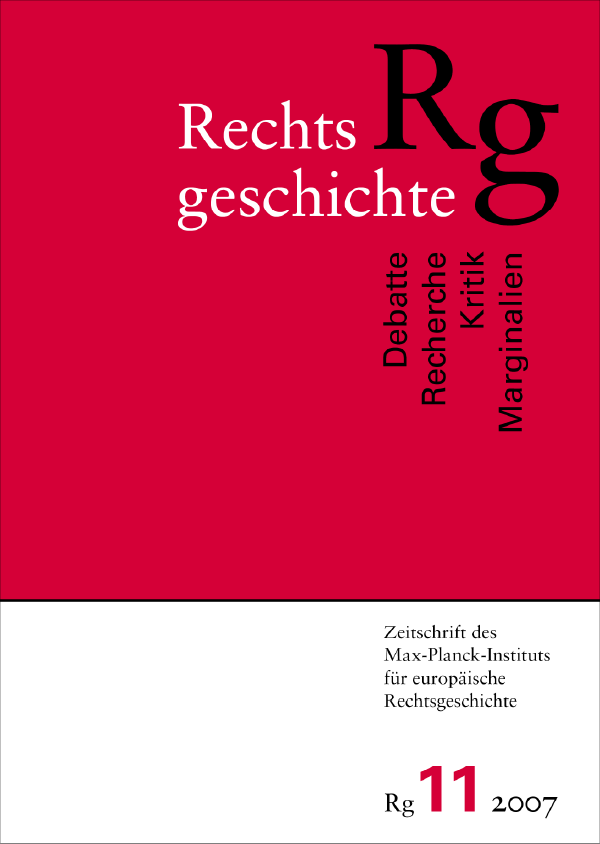Tempoverschleppung?
Anmerkungen zur Gesellschaftssteuerung und zu deren Recht
DOI:
https://doi.org/10.12946/rg11/056-063Abstract
The insight that law is conceived to be positive, i. e. the fact that law can and will be changed by and through the actions of the political actors, has been one of the most important factors in the history of legal differentiation. This factor gained even more in importance once the concept of the positivity of law was combined with the concept of the democratic welfare state and with its ambitions of social control. This article tries to reconstruct the historical dynamic of this structural cluster. Starting with the major changes which occurred in the positivity of law during the second half of the 19th century, the stimulations and constraints determining this process of accelerated legal production leading up to the current era of globalization are identified. However, the common assumption that globalization heralds the end of the secularistic dynamic of legalization is disputed; it will be shown that a new regulatory mix of international and national law, of self-produced legal regimes with global ambitions and of an even more intensified national regulation, seems rather more plausible.
Downloads
Veröffentlicht
Zitationsvorschlag
Ausgabe
Rubrik
Lizenz
Copyright (c) 2007 Autor/in

Dieses Werk steht unter einer Creative Commons Namensnennung - Nicht-kommerziell - Keine Bearbeitung 3.0 International -Lizenz.





